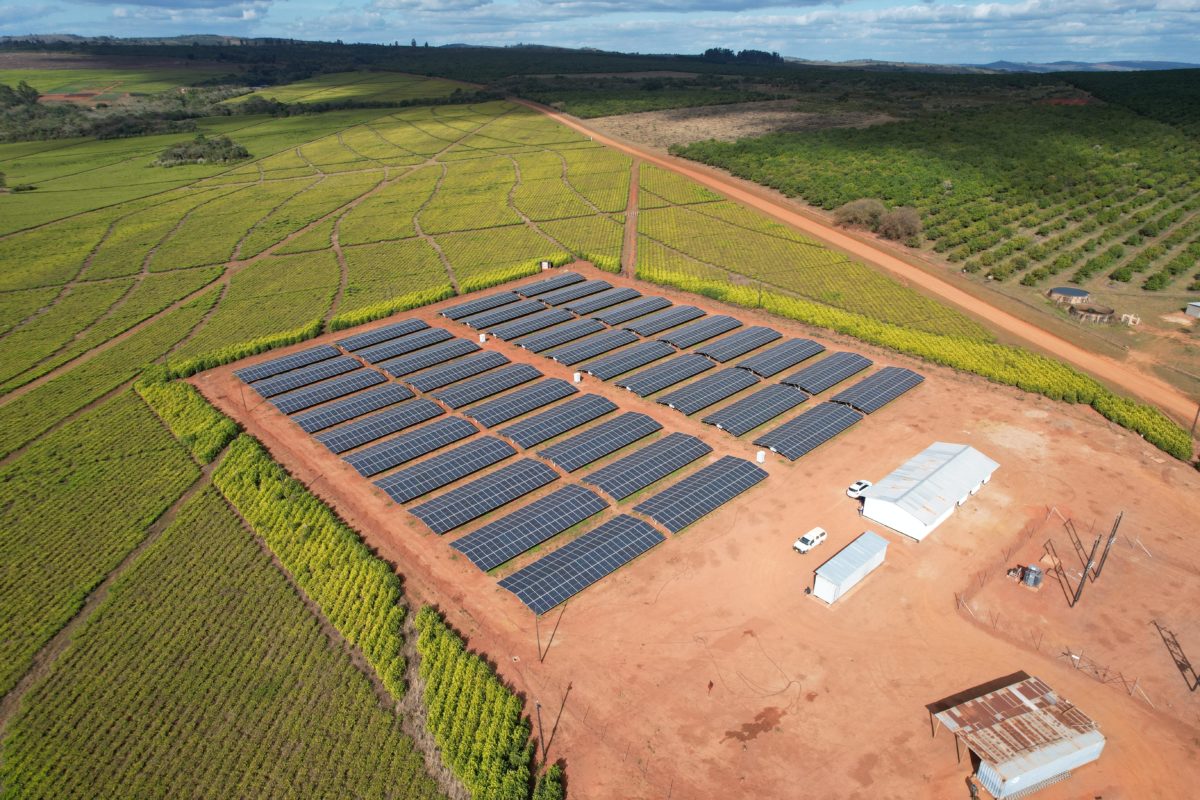South African renewables company Blockpower is nearing completion of a 4.6 MWp/1.44 MWh hybrid solar-plus-storage system which will help a Zimbabwean tea company cope with patchy grid electricity.
Johannesburg-based Blockpower today announced completion of the second phase of installation of the system across three agricultural estates owned by Tanganda Tea Company, in the Chipinge district of eastern Zimbabwe.
With the business often forced to use back-up diesel generators for more than 12 hours per day, Blockpower will install a 478 kWh battery and 870 kW battery inverter at each of the three estates, plus solar panels at each site. The Tingamina estate has 1.2 MWp of ground-mounted solar generation capacity, the Jersey estate 1.4 MWp, and the Ratelshoek location, 2 MWp, with the battery and inverter still to be added at the latter facility.
The overall system, which includes a generator, will have a payback period of three to four years, according to Blockpower director Kyle Bohnsack, who was quoted in a press release issued today about the installation.
This content is protected by copyright and may not be reused. If you want to cooperate with us and would like to reuse some of our content, please contact: editors@pv-magazine.com.




By submitting this form you agree to pv magazine using your data for the purposes of publishing your comment.
Your personal data will only be disclosed or otherwise transmitted to third parties for the purposes of spam filtering or if this is necessary for technical maintenance of the website. Any other transfer to third parties will not take place unless this is justified on the basis of applicable data protection regulations or if pv magazine is legally obliged to do so.
You may revoke this consent at any time with effect for the future, in which case your personal data will be deleted immediately. Otherwise, your data will be deleted if pv magazine has processed your request or the purpose of data storage is fulfilled.
Further information on data privacy can be found in our Data Protection Policy.